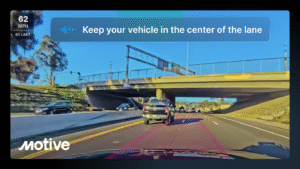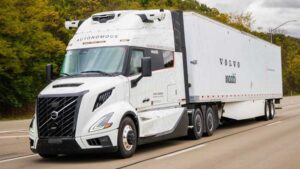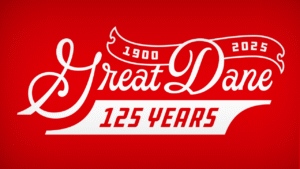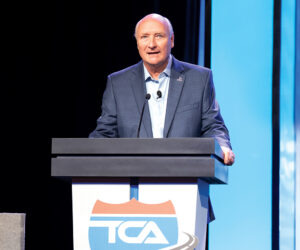GRAIN VALLEY, Mo. — The Owner-Operator Independent Drivers Association Tuesday maintained that what it calls the “increasing number of exemption requests” from the December electronic logging device mandate and the government’s recent response “proves there is no safety benefit of this technology.”
OOIDA points to this as one of many reasons to delay the federal regulation requiring trucks to be equipped with ELDs.
“The reasons cited in the requests are not unique to just a single company or one sector of the trucking industry,” said Todd Spencer, executive vice president of OOIDA. “Many of those same concerns apply to all affected by this one-size-fits-all mandate.”
Twelve organizations have filed exemption requests and 31 organizations have requested a delay of the December 18 implementation date.
The 12 organizations include only three motor carrier companies — Hub Group Trucking, YRCW Worldwide and the United Parcel Services.
The Federal Motor Carrier Safety Administration estimates there are over 500,000 registered motor carriers in the United States.
The other requests for exemptions have come from associations that transport goods and services.
Most of those 31 who have requested delays are associations with trucking-related activities.
“In one instance, they denied the request, and in a couple of others, they granted the requests, but in none of these did FMCSA’s decisions show any consistency in reasoning,” said Spencer.
OOIDA said in its denial to one group, the agency said that the request did not demonstrate how, without using ELDs, they would maintain a level of safety equivalent to, or greater than, the level achieved without the exemption.
However, a review of FMCSA documents showed the agency denied two applicants for the aforementioned reason.
In granting exemptions to two other groups, the agency made no mention of safety, OOIDA said.
“It’s the Nightmare on ELD street,” said Spencer. “Confusion and concern surround this issue. The best solution is an alternate ending to the frightening scene by way of a delay.”
The timing of the announcement comes on the heels of a recent coalition push to delay the electronic logging device mandate.
OOIDA has long contended that a delay is necessary until FMCSA addresses numerous unresolved issues identified by impacted stakeholders. There are significant technological and real-world concerns that have not been addressed by FMCSA, OOIDA said, including the certification of devices “or lack thereof,” connectivity problems in remote areas of the country, cybersecurity vulnerabilities, and the ability of law enforcement to access data.
“The ELD mandate is estimated to cost impacted stakeholders more than $2 billion, making it one of the most expensive federal transportation rulemakings over the last decade,” said Spencer. “This is a massive, unfunded mandate that provides no safety, economic, or productivity benefits for those ensnared by the mandate. This is another example of a costly regulation imposed on small-business truckers that has no bearing on safety.”
OOIDA worked closely with Rep. Brian Babin, R-Texas, a member of the House Transportation and Infrastructure Committee and the Highways and Transit Subcommittee, to introduce legislation that would provide for a two-year delay before mandatory implementation of the ELD mandate.
Babin’s bill was referred to the committee of which he is a member, but no action has been taken.
Based on documentation from the Federal Register, the FMCSA has not published a decision on exemption requests from the following:
Hub Group Trucking
HGT said all of its 2,700 trucks operate in the intermodal segment of freight transportation and are currently equipped with automatic on-board recorders (AOBRD) and all trucks have been AOBRD-compliant since late 2010.
The current electronic logging device rule includes a grandfather provision that allows AOBRDs to be used until December 16, 2019.
HGT is requesting a limited exemption to allow any truck added to its fleet after December 17, 2017, to be equipped with an AOBRD in lieu of an ELD until full transition to ELDs for all of its fleet can be accomplished.
The company said it plans to add at least 160 trucks and drivers to its fleet in 2018.
HGT contends that the carrier will face several challenges running both an AOBDR system and ELD system at the same time.
YRCW
YRCW has applied for a temporary exemption (1) to allow an alternative ELD phase-in method for fleets using compliant AOBRDs (2) from the requirement that an ELD automatically record certain data elements upon a duty status change when a driver is not in the vehicle; (3) to allow ELDs to be configured with a special driving mode for yard moves that does not require the
driver to re-input yard move status every time the tractor is powered off; and (4) to allow vehicle movements of less than one mile conducted on YRCW property by non-CDL YRCW drivers to be annotated as “on property — other.”
YRCW said in its application that its companies currently utilize paper logs and as such, the adoption of electronic logs is the single largest change in recording record-of-duty status in decades.
“Many of our drivers are long-tenured and may face challenges in adopting a new system,” YRCW said in its application. “Since operational flexibility does not allow a driver to be
assigned a tractor, a ‘mixed fleet’ scenario forces drivers to be trained to use both AOBRD and ELD systems and introduce more complexity, errors and challenges for all stakeholders.”
G4S Secure Solutions
G4S is an international security solutions group and a component of its operations is detainee and prisoner transport.
In order to perform these transportation services, G4S is registered with FMCSA as a for-hire motor carrier and while the company said it maintains a relatively small fleet of vehicles, a significant portion of its transportation services are performed by G4S employees in customer/government-owned equipment (e.g., buses and 15-passenger-vans).
G4S believes an exemption is in order for instances when its drivers operate different customer-owned vehicles each and every trip — depending on which vehicles the customer makes available — making it that more impractical to install any type of equipment in the vehicles. As the vehicles are different each trip, it is possible, and even probable, that any ELD equipment G4S might choose to employ for its own fleet of vehicles would not be compatible with the customer-owned vehicles, and the company’s drivers would not be aware of that fact until it came time to operate the equipment on a given day, the request stated.
National Pork Producers Council (NPPC)
NPPC filed the application for exemption on behalf of itself and the following organizations: American Beekeeping Federation; American Farm Bureau Federation; Livestock Marketing Association; National Aquaculture Association; National Cattleman’s Beef Association; North American Meat Institute; and the U.S. Cattlemen’s Association.
NPPC requests an exemption for all livestock haulers, which NPPC defines as “livestock, poultry, aquaculture, and insect producers, processors and transporters.”
NPPC said it is seeking this limited exemption from ELDs for livestock haulers because (1) livestock haulers are not, and will not, be prepared to meet the December 18 compliance date; (2) the current ELD retail marketplace clearly does not support the needs of livestock haulers and questions remain as to whether current ELD devices can accommodate HOS exemptions currently utilized by the livestock industry; (3) There is a significant lack of education and awareness by livestock haulers and the livestock producers they service regarding the ELD mandate, current exemptions, and the use and operation of ELDs, requiring time for adequate outreach and training to take place; and (4) concern over the ELD mandate has exposed incompatibilities between the HOS rules and the livestock industry, and is causing disruption for livestock haulers, increasing already severe driver shortages and endangering the health and welfare of the millions of animals transported by livestock carriers daily.
Power and Communication Contractors Association (PCCA)
The PCCA represents contractors, manufacturers and distributors who build and repair America’s power and communications infrastructure, including electric transmission, distribution, and substation facilities and broadband, telephone, and cable television systems.
While PCCA is not aware of a confirmed, finite number of drivers in the power and communication construction industry, it believes there are tens of thousands of them across the U.S.
The requested exemption would apply to drivers in the power and communications construction industry who operate under “significantly different circumstances than interstate truck drivers.”
The association said commercial motor vehicle operators working on broadband and/or electric infrastructure projects commonly drive multiple vehicles for short distances within a single day, and a single vehicle is often driven by multiple drivers.
PCCA’s application requests an exemption from requirements to use ELDs in lieu of written logs to document their RODS. The exemption they are requesting would be limited to PCCA drivers (1) who are on duty no more than 14 hours per day; (2) who drive less than 200 miles per day, regardless of start and stop location; and (3) for whom the driving of CMVs is incidental to their core employment.
Western Equipment Dealers Association (WEDA)
Groups under the WEDA constitute approximately 6,000 farm, industrial and outdoor power equipment dealers in North America. WEDA states that in the agriculture sector, equipment dealers play a key role in selling and servicing equipment for farmers and ranchers, as they transport machinery to and from farms and between dealerships.
WEDA said those dealers partner with agricultural producers to increase productivity through the training and use of new equipment technologies.
Many of the vehicles owned by equipment dealers require a CLD to operate. When transporting equipment to and from the farm on behalf of the farmer, they are either delivering new equipment or transporting equipment to a dealership to be serviced.
Equipment dealers also employ service trucks that drive to farms and ranches to work on customers’ equipment and deliver parts to the customers’ locations. In either instance, these vehicles usually operate within a confined distance from the dealership of less than 150 miles,
and are primarily in rural regions of their respective states.
WEDA said the federal government has already granted equipment dealers exemptions in other transportation-related issues and that ELD requirements threaten to limit the exemptions and weave a complex regulatory framework that would be difficult for equipment dealers to comply with.
Motion Picture Association of America (MPAA)
If granted, the exemption would allow all drivers of CMVs providing transportation of property to and from a theatrical or television motion picture production site to complete paper RODS
instead of using an ELD device on or after the December 18 compliance date.
MPAA reports that approximately 6,500 drivers operate CMVs on a full- or part-time basis for the motion picture industry, spending on average less than four hours driving about 40 miles per day. Their resulting RODs are often very complex, as are the driver HOS records that the motor carriers must keep, primarily because the drivers may operate multiple trucks during a single day.
MPAA contends that the lack of interoperability among ELD platforms developed by various manufacturers means that motion picture company drivers will not be able to transfer HOS data from one carrier or vehicle to other carriers or vehicles.
MPAA says a driver who is required to use an ELD may operate a CMV that has one operating system installed on the truck. When the driver transfers to operating for another studio or
production company, that company may use a different ELD operating system for its vehicles. The HOS data cannot automatically be transferred from the first company’s vehicle to the second company’s system unless both ELD devices use the same platform.
MPAA said it believes that requiring production company drivers to record their HOS using incompatible ELD platforms would prevent them from implementing more efficient or effective operations that would maintain a level of safety equivalent to, or greater than, the level achieved
without the requested exemption. Allowing production company drivers to continue using paper RODS to record their HOS data will not jeopardize operational safety or increase fatigue-related crashes, MPAA contends.
The agency has issued responses to four other applications for exemption.
For the Truck Renting and Leasing Association, FMCSA decided to grant a limited exemption for the driver and carrier of a CMV rented for eight days or fewer, regardless of reason. The agency did determine that an exemption period of up to 30 days, as requested, is unnecessarily long given the importance of ELDs to ensure the accuracy of HOS records.
One condition of the exemption is that a copy of the rental agreement must be carried on the vehicle and made available to law enforcement. Another is that the driver must possess copies of his or her RODS for the current and prior seven days, if required on those days.
For the United Parcel Service (UPS), FMCSA agreed with UPS’ request that permitting all motor carriers to configure ELDs with a yard-move mode that does not require a driver to re-input yard move status every time the tractor is powered off will ensure that drivers operating under the yard-move status will achieve a level of safety that is equivalent to or greater than the level that would be obtained under the regulation. Allowing multiple power-off cycles for yard moves is consistent with what is currently permitted for the other special driving category, personal conveyance.
UPS also said it wanted to continue to utilize AOBDRs on a site-by-site basis.
UPS said in its request for exemption that it manages 2,800 tractors in 35 locations and plans to purchase more than 1,500 new tractors in 2018. It requested continued use of the AOBRDs as the company converts its fleet to ELDs on a site-by-site basis. FMCSA granted the request.
The FMCSA denied an exemption request from the Pipe Line Contractors Association (PLCA), which said its drivers almost always operate within 100 miles of their assembly appoint and meet other requirements for short-haul exception other than the fact that drivers may not return within the 12 hours required for use of the short-haul exemption. The agency said it denied the request primarily because PLCA did not demonstrate how, without using ELDs, the association would be able to maintain a level of safety equivalent to, or greater than, the level achieved without the exception.
The agency also denied a request from MBI Energy Services, which operates 42 single cabs vehicles used to perform various work activities where connectivity is limited, working and road conditions are rough and the necessity for driving on public roads is sporadic and incidental to the overall work being performed. MBI said these vehicles may sit on work locations for long periods of time, up to weeks or even months. With ELDs, MBI said the devices used must be capable of satellite communication where cell communication is poor to non-existent. FMCSA said it denied the request primarily because MBI did not demonstrate how without using ELDs the company could maintain a level of safety equal to, or greater than, the level achieved without the exception.
Lyndon Finney’s publishing career spans over 55 years beginning with a reporter position with the Southwest Times Record in Fort Smith, Arkansas, in 1965. Since then he’s been a newspaper editor at the Southwest Times Record, served five years as assistant managing editor of the Arkansas Democrat-Gazette in Little Rock and from November 2004 through December 2019 served as editor of The Trucker. Between newspaper jobs he spent 14 years as director of communications at Baptist Health, Arkansas’ largest healthcare system. In addition to his publishing career he served for 46 years as organist at Little Rock’s largest Baptist church.















Oh noooo…if one go’s, we all go! Tried to tell those numb nuts politicians that one size does not fit all in the trucking industry! They only listen when it effects their pockets, so here we are!